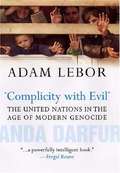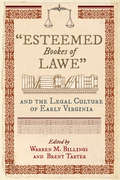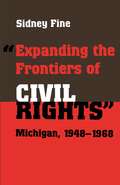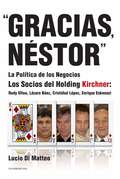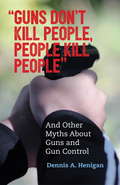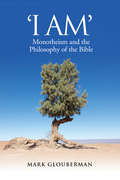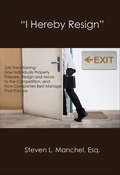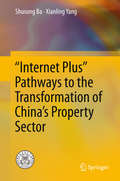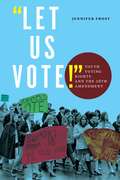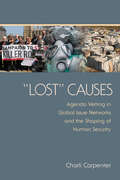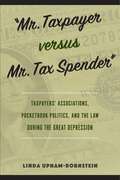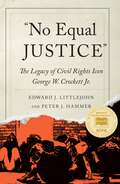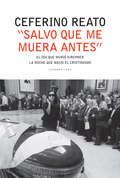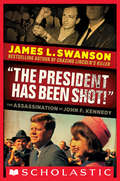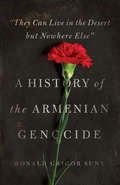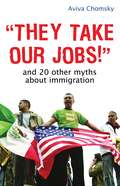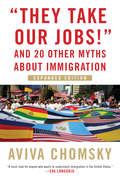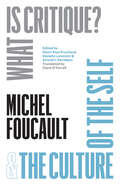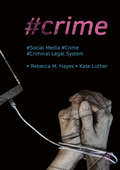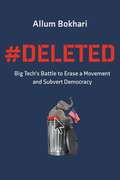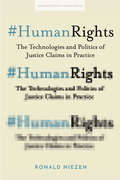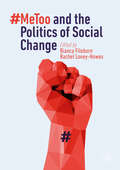- Table View
- List View
"All Labor Has Dignity"
by Martin Luther King Jr.An unprecedented and timely collection of Dr. King's speeches on labor rights and economic justice. People forget that Dr. King was every bit as committed to economic justice as he was to ending racial segregation. He fought throughout his life to connect the labor and civil rights movements, envisioning them as twin pillars for social reform. As we struggle with massive unemployment, a staggering racial wealth gap, and the near collapse of a financial system that puts profits before people, King's prophetic writings and speeches underscore his relevance for today. They help us imagine King anew: as a human rights leader whose commitment to unions and an end to poverty was a crucial part of his civil rights agenda. Covering all the civil rights movement highlights--Montgomery, Albany, Birmingham, Selma, Chicago, and Memphis--award-winning historian Michael K. Honey introduces and traces King's dream of economic equality. Gathered in one volume for the first time, the majority of these speeches will be new to most readers. The collection begins with King's lectures to unions in the 1960s and includes his addresses during his Poor People's Campaign, culminating with his momentous "Mountaintop" speech, delivered in support of striking black sanitation workers in Memphis. Unprecedented and timely, "All Labor Has Dignity" will more fully restore our understanding of King's lasting vision of economic justice, bringing his demand for equality right into the present.
"Complicity With Evil": The United Nations in the Age of Modern Genocide
by Adam LeborFrom the killing fields of Rwanda and Srebrenica a decade ago to those of Darfur today, the United Nations has repeatedly failed to confront genocide. This is evinced, author and journalist Adam LeBor maintains, in a May 1995 document from Yasushi Akashi, the most senior UN official in the field during the Yugoslav wars, in which he refused to authorize air strikes against the Serbs for fear they would "weaken" Milosevic. More recently, in 2003, urgent reports from UN officials in the Sudan detailing atrocities from Darfur were ignored for a year because they were politically inconvenient. This book is the first to examine in detail the crucial role of the Secretariat, its relationship with the Security Council, and the failure of UN officials themselves to confront genocide. LeBor argues the UN must return to its founding principles, take a moral stand and set the agenda of the Security Council instead of merely following the lead of the great powers. LeBor draws on dozens of firsthand interviews with UN officials, current and former, and such international diplomats as Madeleine Albright, Richard Holbrooke, Douglas Hurd, and David Owen. This book will set the terms for discussion when UN Secretary General Kofi Annan steps down to make room for a new head of the world body, and political observers assess Annan's legacy and look to the future of the world organization.
"Esteemed Bookes of Lawe" and the Legal Culture of Early Virginia (Early American Histories)
by Brent Tarter Warren M. BillingsVirginia men of law constituted one of the first learned professions in colonial America, and Virginia legal culture had an important and lasting impact on American political institutions and jurisprudence. Exploring the book collections of these Virginians therefore offers insight into the history of the book and the intellectual history of early America. It also addresses essential questions of how English culture migrated to the American colonies and was transformed into a distinctive American culture. Focusing on the law books that colonial Virginians acquired, how they used them, and how they eventually produced a native-grown legal literature, this collection explores the law and intellectual culture of the Commonwealth and reveals the origins of a distinctively Virginian legal literature. The contributors argue that understanding the development of early Virginia legal history—as shown through these book collections—not only illuminates important aspects of Virginia’s history and culture; it also underlies a thorough understanding of colonial and revolutionary American history and culture.
"Expanding the Frontiers of Civil Rights": Michigan, 1948-1968 (Great Lakes Books Series)
by Sidney FineAlthough historians have devoted a great deal of attention to the development of federal government policy regarding civil rights in the quarter century following World War II, little attention has been paid to the equally important developments at the state level. Few states underwent a more dramatic transformation with regard to civil rights than Michigan did. In 1948, the Michigan Committee on Civil Rights characterized the state of civil rights in Michigan as presenting "an ugly picture." Twenty years later, Michigan was a leader among the states in civil rights legislation. "Expanding the Frontiers of Civil Rights" documents this important shift in state level policy and makes clear that civil rights in Michigan embraced not only blacks but women, the elderly, native Americans, migrant workers, and the physically handicapped.
"Gracias, Néstor": La política de los negocios. Los socios del Holding Kirchner: Rudy Ulloa, Lázaro
by Lucio Di MatteoEl modus operandi de los socios del poder político en la Argentina:loskirchneristas no dejan documentos por escrito, de hecho las caras de losempresarios K casi no aparecen en público; pero los hechos comenzaron aregularizarse en Santa Cruz, sistematizarse en Buenos Aires y volverseprácticas habituales a nivel nacional. Lucio Di Matteo cuenta por qué no se trata de movimientos económicosaislados sino de un cuidadoso plan instrumentado por uno de lospresidentes más ambiciosos desde Perón.Los cuatro empresarios que protagonizan este libro participan denegocios relacionados con el Estado. Enrique Eskenazi con el petróleo,bancos, construcción y bodegas, entre otros. Cristóbal López con eljuego (los casinos y el hipódromo), y también el petróleo, aunque sediversifica preparándose para el poskirchnersimo. Lázaro Báez en la cajagrande de la obra pública, el petróleo nuevamente, hotelería y distintasempresas. Y Rudy Ulloa, ex chofer de Néstor Kirchner, en la caja chicadel multimedios santacruceño, gracias a la generosa pauta publicitariadel Estado Nacional.A partir de la argentinización de YPF la metodología comenzó avislumbrarse con mayor claridad y surgieron las denuncias de apriete aempresas extranjeras para que dejen sus activos en manos de la«burguesía nacional». Ezkenazi, López, Báez y Ulloa muestran una formade ejercer el poder en la Argentina y constituyen un ejemplo de lasrelaciones entre política y negocios.
"Guns Don't Kill People, People Kill People": And Other Myths About Guns and Gun Control
by Dennis A. HeniganDebunking the lethal logic behind the pervasive myths that have framed the gun control debate"When guns are outlawed, only outlaws will have guns.""An armed society is a polite society.""The only thing that stops a bad guy with a gun is a good guy with a gun.""Gun control doesn't work because criminals don't follow the law.""Gun manufacturers shouldn't be responsible for gun crime, any more than Budweiser is responsible for drunk driving.""We don't need new gun laws. We just need to enforce the ones we have.""Gun control is a slippery slope to complete gun bans."The gun lobby's remarkable success in using these engaging slogans to frame the gun control debate has allowed it to block lifesaving gun legislation for decades. But is there any truth to this bumper-sticker logic? Dennis Henigan exposes the mythology and misguided thinking at the core of these pro-gun catchphrases, which continue to have an outsized influence on public attitudes toward guns and gun control. He counters the gun lobby's messages by weaving together the most compelling current research and insights drawn from the grim reality of deadly gunfire in our homes and communities. Henigan charts a new path toward ending the American nightmare of gun violence.From the Trade Paperback edition.
"I AM": Monotheism and the Philosophy of the Bible
by Mark GloubermanFor whom was the Hebrew Bible written? How much truth does it contain? What, according to the Bible, is the place of men and women in the world? What connection is there between the Bible and morality? In "I AM" Mark Glouberman supplies new answers to these old questions. He does this by establishing that the foundational scripture of the West is, first and foremost, a philosophical document, not a theological tract, nor yet the religious history of a nation. The author identifies the Bible’s fundamental principle, the ontological principle of particularity. This principle, he shows, is what makes the Bible the revolutionary text that it is. God’s "I AM WHO I AM" asserts the principle, of which the Bible’s deity is a personified form. God’s self-identification also points to the real, anthropological, meaning of the ism called "monotheism." A portion of Glouberman’s book is devoted to illustrating the Bible’s live relevance in many of the areas where modern philosophers congregate, including moral philosophy, political philosophy, metaphysics, and epistemology. Isn’t it a bit late in the day for the Bible’s meaning to be revealed? Glouberman says that it’s about time.
"I Hereby Resign": Job Transitioning: How Individuals Properly Prepare, Resign And Move To The Competition, And How Companies Best Manage That Proc
by Steven L. ManchelA concise, practical guide to problem-free job transitions for employees, recruiters, and business leaders: “Incredibly user-friendly.” —James B. Adelman, Esq., Senior Vice President, General Counsel, Commonwealth Financial NetworkThe fundamental purpose of this book is to provide a useful how-to guide for people who are deciding whether to leave their current employer and join a direct competitor, and for companies involved in the hiring and recruiting process. Many employees are subject to so-called Non-Competition Agreements and, consequently, already understand that there are significant risks, legal and business, when transitioning jobs. However, what most do not appreciate is that there are a host of laws and protocols, having nothing to do with whether an employment contract exists, that govern the way one may properly prepare to leave and the manner in which the hiring company can bring the new hire on board. Every year millions voluntarily leave their companies to join a direct competitor and millions more explore the possibility. All such undertakings, even if the ultimate decision is not to leave, bring legal and litigation and business risks—risks that can result in large damage awards, injunction orders, and general corporate disruption and turmoil. This book by an experienced attorney offers important guidance and practical tips on avoiding and minimizing those risks.“This book should find its way to the desk of anyone who is contemplating a transition to a competing firm, now or in the future. It is also a ‘must-read’ for all organizations involved in lateral hiring, as it explains the ‘do’s’ and ‘don’ts’ of talent acquisition.” —Boris Groysberg, Richard P. Chapman Professor of Business Administration at Harvard Business School
"I'm Not a Racist, But . . .": The Moral Quandary of Race
by Lawrence BlumNot all racial incidents are racist incidents, Lawrence Blum says. "We need a more varied and nuanced moral vocabulary for talking about the arena of race. We should not be faced with a choice of 'racism' or nothing." Use of the word "racism" is pervasive: An article about the NAACP's criticism of television networks for casting too few "minority" actors in lead roles asks, "Is television a racist institution?" A white girl in Virginia says it is racist for her African-American teacher to wear African attire. Blum argues that a growing tendency to castigate as "racism" everything that goes wrong in the racial domain reduces the term's power to evoke moral outrage. In "I'm Not a Racist, But . . .", Blum develops a historically grounded account of racism as the deeply morally-charged notion it has become. He addresses the question whether people of color can be racist, defines types of racism, and identifies debased and inappropriate usages of the term. Though racial insensitivity, racial anxiety, racial ignorance and racial injustice are, in his view, not "racism," they are racial ills that should elicit moral concern. Blum argues that "race" itself, even when not serving distinct racial malfeasance, is a morally destructive idea, implying moral distance and unequal worth. History and genetic science reveal both the avoidability and the falsity of the idea of race. Blum argues that we can give up the idea of race, but must recognize that racial groups' historical and social experience has been shaped by having been treated as if they were races.
"Internet Plus" Pathways to the Transformation of China's Property Sector
by Shusong Ba Xianling YangThis book discusses in detail the impact of the Internet on the real-estate brokerage industry. It starts by tracing the history of the industry in America, and then goes on to present case studies of successful online brokerage companies and startups, and to evaluate future trends from the perspectives of investors as well as researchers. It explains how the Internet can transform an industry, enabling readers to spot potential investment opportunities.
"Let Us Vote!": Youth Voting Rights and the 26th Amendment
by Jennifer FrostThe fascinating tale of how a bipartisan coalition worked successfully to lower the voting age“Let Us Vote!” tells the story of the multifaceted endeavor to achieve youth voting rights in the United States. Over a thirty-year period starting during World War II, Americans, old and young, Democrat and Republican, in politics and culture, built a movement for the 26th Amendment to the US Constitution, which lowered the voting age from twenty-one to eighteen in 1971. This was the last time that the United States significantly expanded voting rights.Jennifer Frost deftly illustrates how the political and social movements of the time brought together bipartisan groups to work tirelessly in pursuit of a lower voting age. In turn, she illuminates the process of achieving political change, with the convergence of “top-down” initiatives and “bottom-up” mobilization, coalition-building, and strategic flexibility. As she traces the progress toward achieving youth suffrage throughout the ’60s, Frost reveals how this movement built upon the social justice initiatives of the decade and was deeply indebted to the fight for African American civil and voting rights.2021 marks the fiftieth anniversary of this important constitutional amendment and comes at a time when scrutiny of both voting age and voting rights has been renewed. As the national conversation around climate crisis, gun violence, and police brutality creates a new call for a lower voting age, “Let Us Vote!” provides an essential investigation of how this massive political change occurred, and how it could be brought about again.
"Lost" Causes: Agenda Vetting in Global Issue Networks and the Shaping of Human Security
by Charli CarpenterWhy do some issues and threats—diseases, weapons, human rights abuses, vulnerable populations—get more global policy attention than others? How do global activist networks decide the particular causes for which they advocate among the many problems in need of solutions? According to Charli Carpenter, the answer lies in the politics of global issue networks themselves. Building on surveys, focus groups, and analyses of issue network websites, Carpenter concludes that network access has a direct relation to influence over how issues are ranked. Advocacy elites in nongovernmental and transnational organizations judge candidate issues not just on their merit but on how the issues connect to specific organizations, individuals, and even other issues.In "Lost" Causes, Carpenter uses three case studies of emerging campaigns to show these dynamics at work: banning infant male circumcision; compensating the wartime killing and maiming of civilians; and prohibiting the deployment of fully autonomous weapons (so-called killer robots). The fate of each of these campaigns was determined not just by the persistence and hard work of entrepreneurs but by advocacy elites' perception of the issues' network ties. Combining sweeping analytical argument with compelling narrative, Carpenter reveals how the global human security agenda is determined.
"Mr. Taxpayer versus Mr. Tax Spender": Taxpayers' Associations, Pocketbook Politics, and the Law during the Great Depression
by Linda Upham-BornsteinDuring the Great Depression, the proliferation of local taxpayers’ associations was dramatic and unprecedented. The justly concerned members of these organizations examined the operations of state, city, and county governments, then pressed local officials for operational and fiscal reforms. These associations aimed to reduce the cost of state and local governments to make operations more efficient and less expensive. “Mr. Taxpayer versus Mr. Tax Spender” presents a comprehensive overview of these grassroots taxpayers’ leagues beginning in the 1860s and shows how they evolved during their heyday in the 1930s. Linda Upham-Bornstein chronicles the ways these taxpayers associations organized as well as the tools they used—constructive economy, political efforts, tax strikes, and tax revolt through litigation—to achieve their objectives. Taxpayer activity was a direct consequence of—and a response to—the economic crisis of the Great Depression and the expansion of the size and scope of government. “Mr. Taxpayer versus Mr. Tax Spender” connects collective tax resistance in the 1930s to the populist tradition in American politics and to other broad impulses in American political and legal history.
"No Equal Justice": The Legacy of Civil Rights Icon George W. Crockett Jr. (African American Life Series)
by Peter J. Hammer Edward J. Littlejohn"There is no equal justice for Black people today; there never has been. To our everlasting shame, the quality of justice in America has always been and is now directly related to the color of one’s skin as well as to the size of one’s pocketbook." This quote comes from George W. Crockett Jr.’s essay, "A Black Judge Speaks" (Judicature, 1970). The stories of Black lawyers and judges are rarely told. By sharing Crockett’s life of principled courage, "No Equal Justice" breaks this silence. The book begins by tracing the Crockett family history from slavery to George’s admission into the University of Michigan Law School. He became one of the most senior Black lawyers in President Franklin Roosevelt’s New Deal administration. Later, he played a central role fighting discrimination in the United Auto Workers union. In 1949, he became the only Black lawyer, in a team of five attorneys, defending the constitutional rights of the leaders of the U.S. Communist Party in United States v. Dennis, the longest and most dramatic political trial in American history. At the close of the case, Crockett and his defense colleagues were summarily sentenced to prison for zealously representing their clients. He headed the National Lawyers Guild office in Jackson, Mississippi, during 1964’s Freedom Summer. In 1966, he was elected to Detroit’s Recorder’s Court—the court hearing all criminal cases in the city. For the first time, Detroit had a courtroom where Black litigants knew they would be treated fairly. In 1969, the New Bethel Church Incident was Crockett’s most famous case. He held court proceeding in the police station itself, freeing members of a Black nationalist group who had been illegally arrested. In 1980, he was elected to the United States Congress where he spent a decade fighting President Reagan’s agenda, as well as working to end Apartheid in South Africa and championing the cause to free Nelson Mandela. Crockett spent his life fighting racism and defending the constitutional rights of the oppressed. This book introduces him to a new generation of readers, historians, and social justice activists.
"Salvo que me muera antes": El día en que murió Kirchner. La noche que nació el cristinismo
by Ceferino Reato«Muchachos, el próximo presidente voy a ser yo salvo que me muera antes.» Néstor Kirchner a un grupo de dirigentes oficialistas y encuestadores. Residencia de Olivos, dos semanas antes de su muerte. A siete años de aquel miércoles 27 de octubre de 2010, la Argentina sigue sin saber con certeza dónde, a qué hora y de qué murió Néstor Kirchner; tampoco, si se podría haber salvado. Con un estilo que ya es marca -información original y precisa en una narración atrapante-, Ceferino Reato cuenta qué pasó exactamente ese día en El Calafate, explica cómo se reconfiguró el poder político en el país a partir de esa noche y da respuesta a las preguntas pendientes: *¿Cómo se llevaban realmente, puertas adentro, Néstor y Cristina? *¿Cuánto sabía ella del esquema de corrupción organizado por él? *¿Qué pasó en la despedida íntima antes del traslado del cuerpo a Buenos Aires? *¿Por qué el velatorio público se hizo a cajón cerrado? Por primera vez, la trama completa de la tragedia que dio origen al poderoso liderazgo de Cristina Fernández.
"The President Has Been Shot!": The Assassination Of John F. Kennedy
by James L. SwansonA breathtaking and dramatic account of the JFK assassination by the NEW YORK TIMES bestselling author of CHASING LINCOLN'S KILLER!In his new young-adult book on the Kennedy assassination, James Swanson will transport readers back to one of the most shocking, sad, and terrifying events in American history. As he did in his bestselling Scholastic YA book, CHASING LINCOLN'S KILLER, Swanson will deploy his signature "you are there" style -- a riveting, ticking-clock pace, with an unprecedented eye for dramatic details and impeccable historical accuracy -- to tell the story of the JFK assassination as it has never been told before.The book will be illustrated with archival photos, and will have diagrams, source notes, bibliography, places to visit, and an index.
"They Can Live in the Desert but Nowhere Else": A History of the Armenian Genocide
by Ronald Grigor SunyStarting in early 1915, the Ottoman Turks began deporting and killing hundreds of thousands of Armenians in the first major genocide of the twentieth century. By the end of the First World War, the number of Armenians in what would become Turkey had been reduced by ninety percent--more than a million people. A century later, the Armenian Genocide remains controversial but relatively unknown, overshadowed by later slaughters and the chasm separating Turkish and Armenian versions of events. In this definitive narrative history, Ronald Suny cuts through nationalist myths, propaganda, and denial to provide an unmatched account of when, how, and why the atrocities of 1915-16 were committed.As it lost territory during the war, the Ottoman Empire was becoming a more homogenous Turkic-Muslim state, but it still contained large non-Muslim communities, including the Christian Armenians. The Young Turk leaders of the empire believed that the Armenians were internal enemies secretly allied to Russia and plotting to win an independent state. Suny shows that the great majority of Armenians were in truth loyal subjects who wanted to remain in the empire. But the Young Turks, steeped in imperial anxiety and anti-Armenian bias, became convinced that the survival of the state depended on the elimination of the Armenians. Suny is the first to explore the psychological factors as well as the international and domestic events that helped lead to genocide.Drawing on archival documents and eyewitness accounts, this is an unforgettable chronicle of a cataclysm that set a tragic pattern for a century of genocide and crimes against humanity.
"They Take Our Jobs!" And 20 Other Myths About Immigration: And 20 Other Myths about Immigration (Myths Made in America)
by Aviva ChomskyIn the spirit of her famous father, Chomsky (Latin American studies, Salem State College, Massachusetts) has been active in Latin American solidarity and immigrant rights issues for over a quarter of a century. Among the myths she dispels are that immigrants send most of what they earn out of the country, they threaten the national culture by refusing to assimilate, that countries need to control who goes in and out, and that the American public opposes immigration. She has not indexed her work. Annotation ©2008 Book News, Inc., Portland, OR (booknews.com)
"They Take Our Jobs!": and 20 Other Myths about Immigration, Expanded Edition
by Aviva ChomskyRevised and expanded edition of the groundbreaking book which demystifies twenty-one of the most widespread myths and beliefs about immigrants and immigrations.Aviva Chomsky dismantles twenty-one of the most widespread and pernicious myths and beliefs about immigrants and immigration in this incisive book. "They Take Our Jobs!" challenges the underlying assumptions that fuel misinformed claims about immigrants, radically altering our notions of citizenship, discrimination, and US history. With fresh material including a new introduction, revised timeline, and updated terminology section, this expanded edition is essential reading for anyone who wants to understand how these myths are used to promote aggressive anti-immigrant policies.
"What Is Critique?" and "The Culture of the Self" (The Chicago Foucault Project)
by Michel FoucaultNewly published lectures by Foucault on critique, Enlightenment, and the care of the self. On May 27, 1978, Michel Foucault gave a lecture to the French Society of Philosophy where he redefined his entire philosophical project in light of Immanuel Kant’s 1784 text “What Is Enlightenment?” Foucault strikingly characterizes critique as the political and moral attitude consisting in the “art of not being governed like this,” one that performs the function of destabilizing power relations and creating the space for a new formation of the self within the “politics of truth.” This volume presents the first critical edition of this crucial lecture alongside a previously unpublished lecture about the culture of the self and three public debates with Foucault at the University of California, Berkeley, in April 1983. There, for the first time, Foucault establishes a direct connection between his reflections on the Enlightenment and his analyses of Greco-Roman antiquity. However, far from suggesting a return to the ancient culture of the self, Foucault invites his audience to build a “new ethics” that bypasses the traditional references to religion, law, and science.
#Crime: Social Media, Crime, and the Criminal Legal System (Palgrave Studies in Crime, Media and Culture)
by Rebecca M. Hayes Kate LutherAs research continues to accumulate on the connections between media and crime, #Crime explores the impact of social media on the criminal legal system. It examines how media influences our perceptions of crime, the perpetration of crime, and the implementation of punishment, whilst emphasizing the significance of race, ethnicity, class, gender, and sexuality. It offers an accessible and in-depth examination of media and in each chapter there are case studies and examples from both legacy and new media, including discussions from Twitter that are being used to raise awareness of criminal legal issues. It also includes interviews with international scholars and practitioners from Australia, Belgium, and the United States to voice a range of global perspectives. This book speaks broadly to those interested in criminology, criminal justice, media and culture, sociology, and gender studies.
#DELETED: Big Tech's Battle to Erase a Movement and Subvert Democracy
by Allum BokhariThe most powerful tech companies in the world are determined to stop Donald Trump.Journalist Allum Bokhari has spent four years investigating the tech giants that dominate the Internet: Google, Facebook, YouTube, Twitter. He has discovered a dark plot to seize control of the flow of information, and utilize that power to its full extent - to censor, manipulate, and ultimately sway the outcome of democratic elections. His network of whistleblowers inside Google, Facebook and other companies explain how the tech giants now see themselves as "good censors," benevolent commissars controlling the information we receive to "protect" us from "dangerous" speech.They reveal secret methods to covertly manipulate online information without us ever being aware of it, explaining how tech companies can use big data to target undecided voters. They lift the lid on a plot four years in the making - a plot to use the power of technology to stop Donald Trump's re-election.
#EATMEATLESS: Good for Animals, the Earth & All
by The Jane Goodall InstituteMake a difference with every meal: eighty recipes to help you go meatless—or just eat meat less. For the health of humankind, the environment, and the animals that inhabit it, the Jane Goodall Institute presents a collection of recipes to illustrate the how and why of vegan eating. Crafted especially for curious cooks looking to incorporate healthier dietary practices and those interested in environmental sustainability, these eighty recipes gives home cooks the tools they need to take charge of their diet and take advantage of their own community&’s local, seasonal bounty. Along with colorful food photography, quotes from Jane Goodall interspersed throughout transform this vegan staple into an inspiring guide to reclaiming our broken food system: for the environment, for the animals, and for ourselves. Whether you&’re interested in reducing your family&’s reliance on meat or in transitioning to a wholly vegetarian or vegan diet, this book has the information and inspiration you need to make meaningful mealtime choices. Dr. Jane Goodall, a longtime vegetarian and a passionate advocate for animals, invites us to commit to a simple promise with her campaign #EatMeatLess.
#HumanRights: The Technologies and Politics of Justice Claims in Practice (Stanford Studies in Human Rights)
by Ronald NiezenSocial justice and human rights movements are entering a new phase. Social media, artificial intelligence, and digital forensics are reshaping advocacy and compliance. Technicians, lawmakers, and advocates, sometimes in collaboration with the private sector, have increasingly gravitated toward the possibilities and dangers inherent in the nonhuman. #HumanRights examines how new technologies interact with older models of rights claiming and communication, influencing and reshaping the modern-day pursuit of justice. Ronald Niezen argues that the impacts of information technologies on human rights are not found through an exclusive focus on sophisticated, expert-driven forms of data management but in considering how these technologies are interacting with other, "traditional" forms of media to produce new avenues of expression, public sympathy, redress of grievances, and sources of the self. Niezen considers various ways that the pursuit of justice is happening via new technologies, including crowdsourcing, social media–facilitated mobilizations (and enclosures), WhatsApp activist networks, and the selective attention of Google's search engine algorithm. He uncovers how emerging technologies of data management and social media influence the ways that human rights claimants and their allies pursue justice, and the "new victimology" that prioritizes and represents strategic lives and types of violence over others. #HumanRights paints a striking and important panoramic picture of the contest between authoritarianism and the new tools by which people attempt to leverage human rights and bring the powerful to account.
#MeToo and the Politics of Social Change
by Bianca Fileborn Rachel Loney-Howes#MeToo has sparked a global re-emergence of sexual violence activism and politics. This edited collection uses the #MeToo movement as a starting point for interrogating contemporary debates in anti-sexual violence activism and justice-seeking. It draws together 19 accessible chapters from academics, practitioners, and sexual violence activists across the globe to provide diverse, critical, and nuanced perspectives on the broader implications of the movement. It taps into wider conversations about the nature, history, and complexities of anti-rape and anti-sexual harassment politics, including the limitations of the movement including in the global South. It features both internationally recognised and emerging academics from across the fields of criminology, media and communications, film studies, gender and queer studies, and law and will appeal broadly to the academic community, activists, and beyond.

